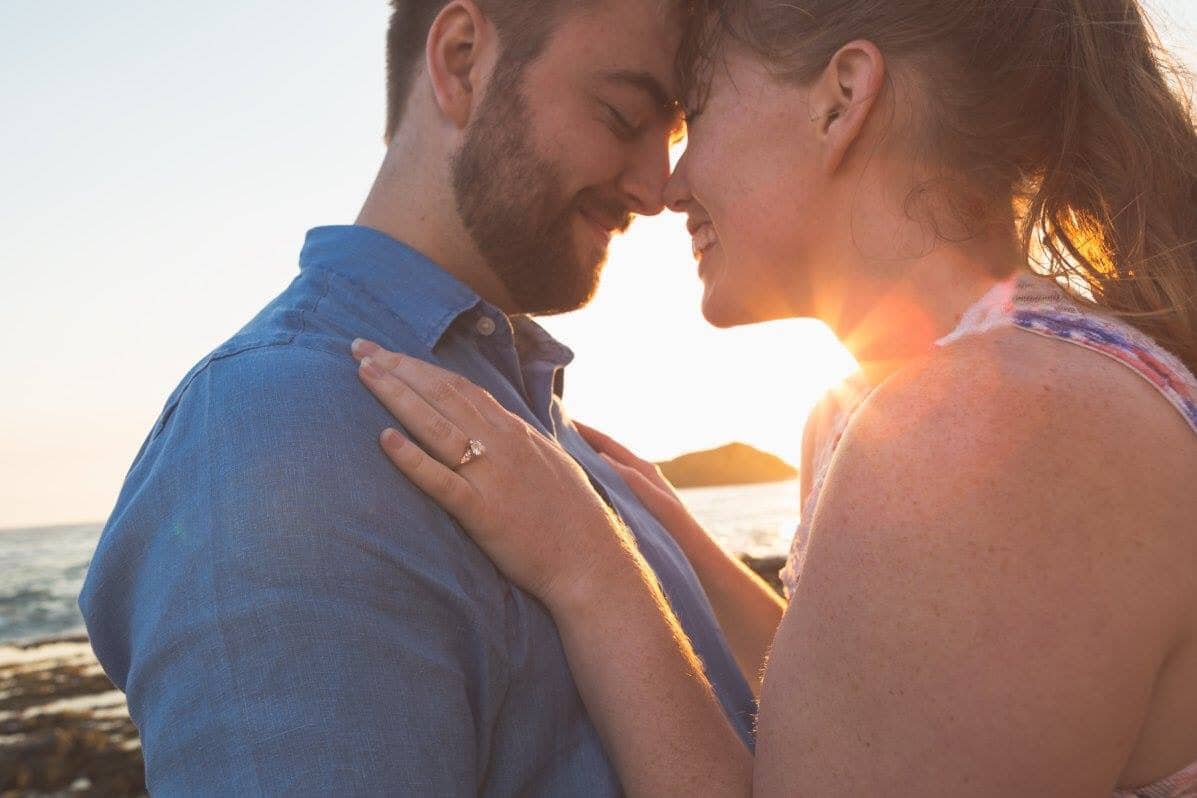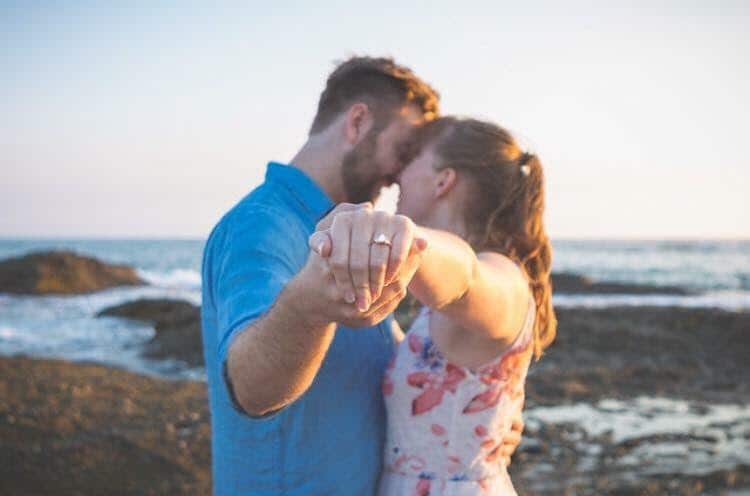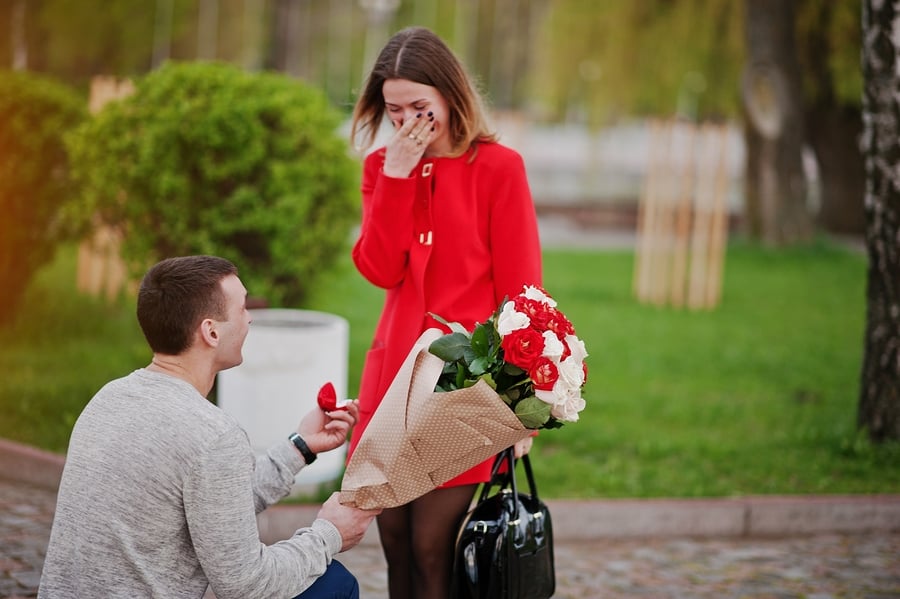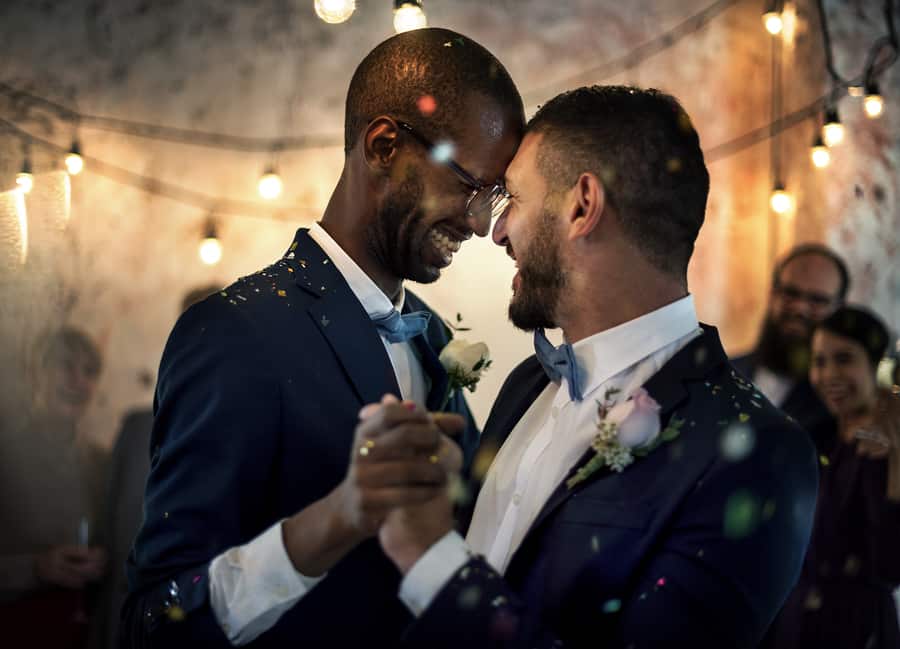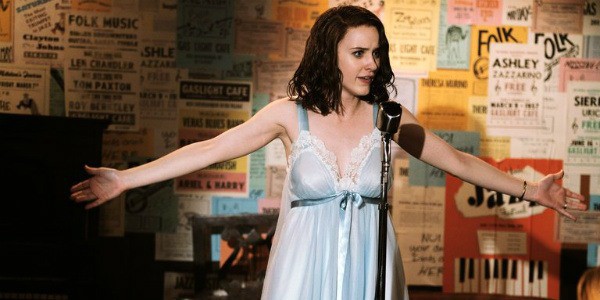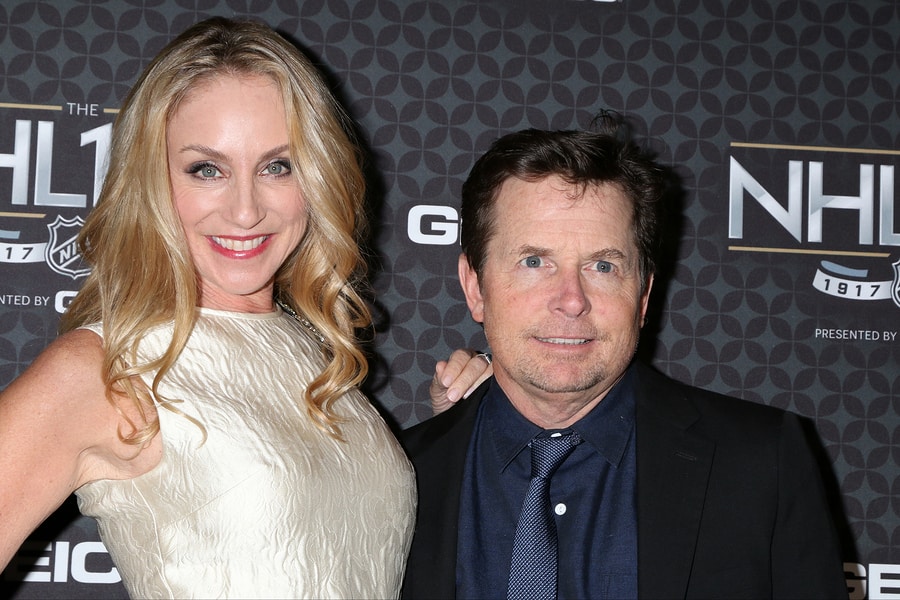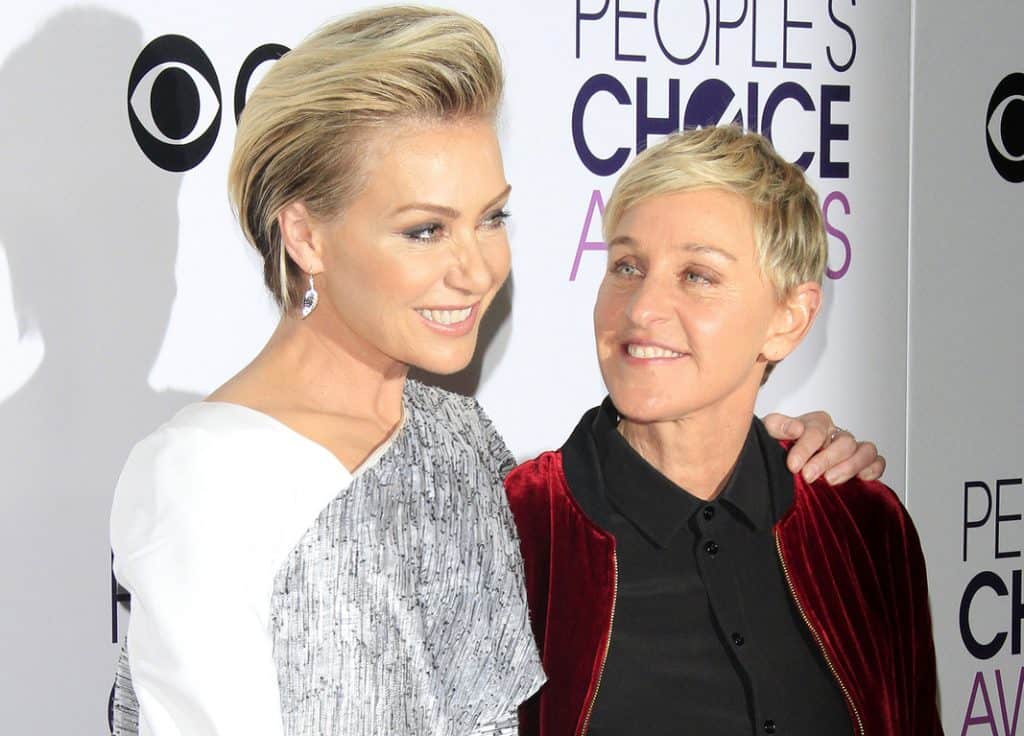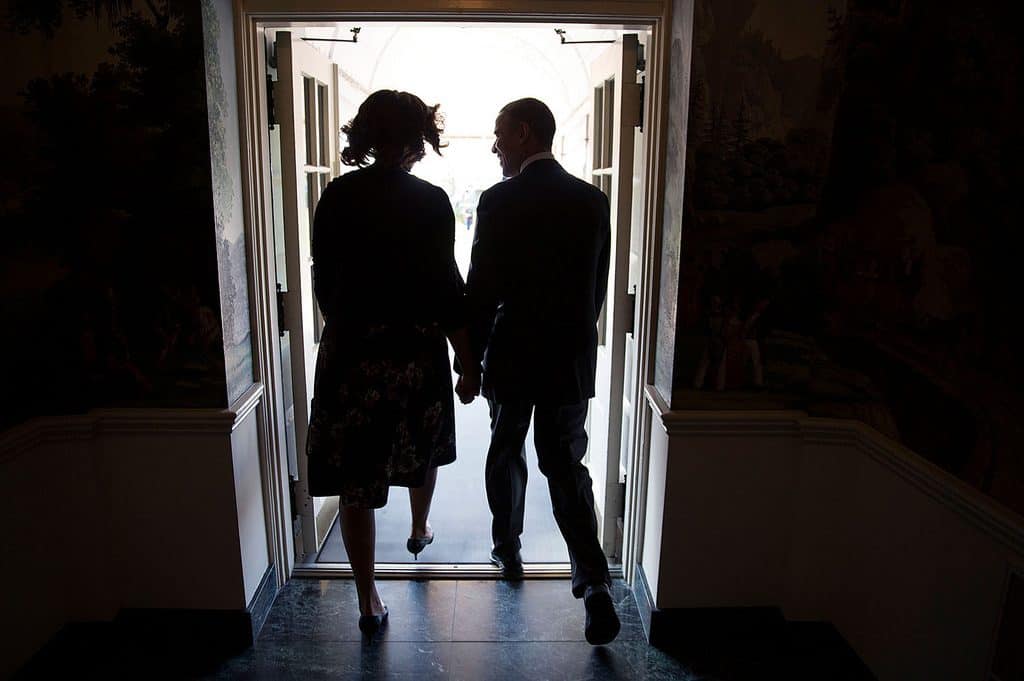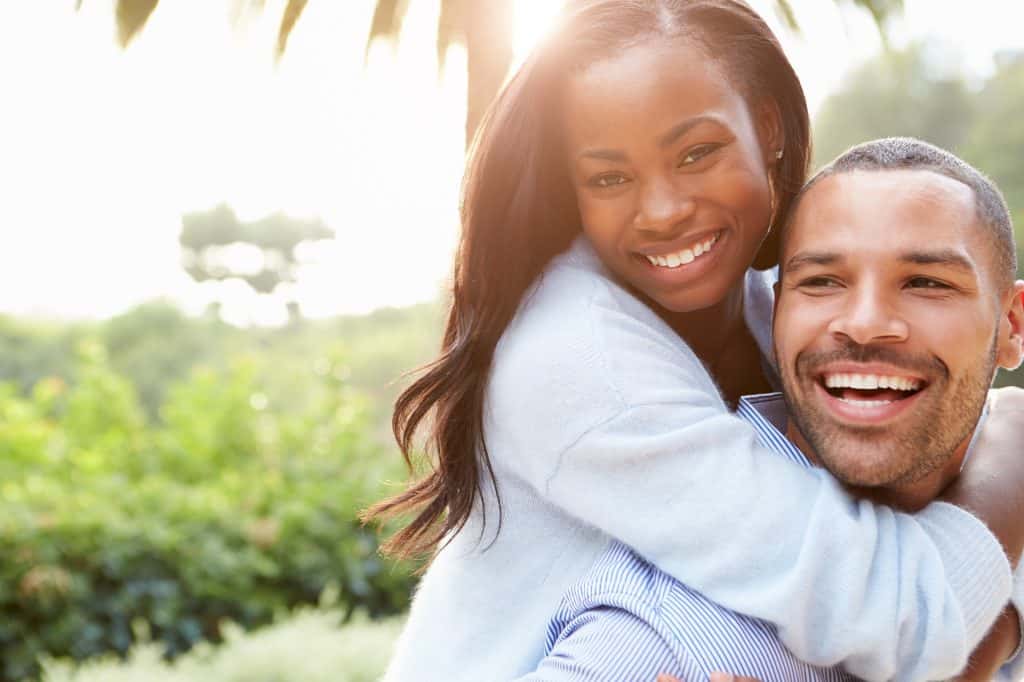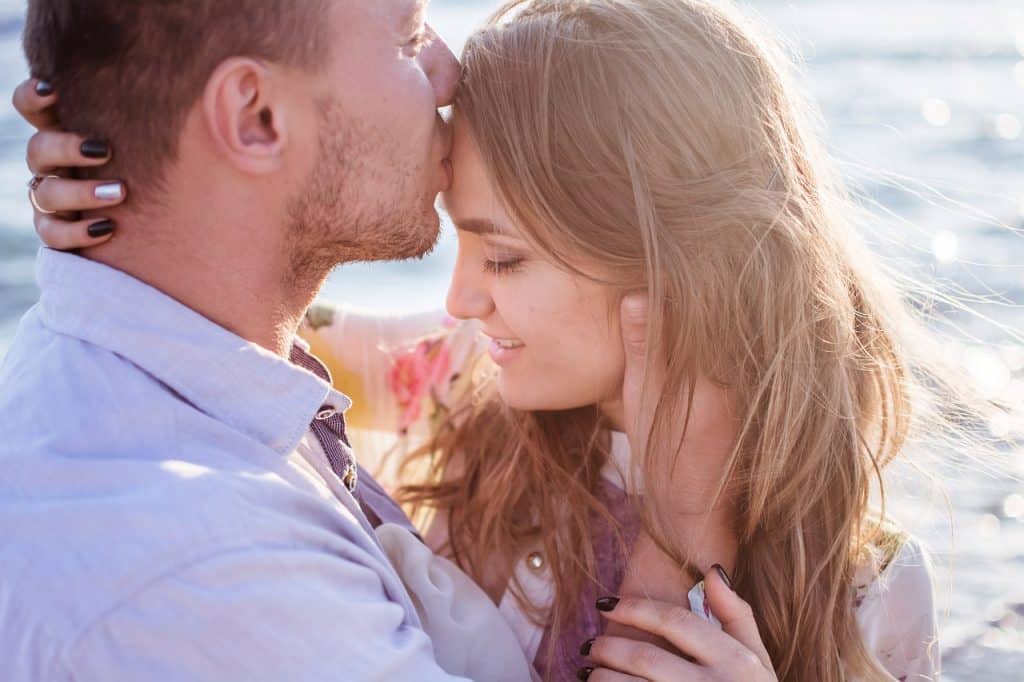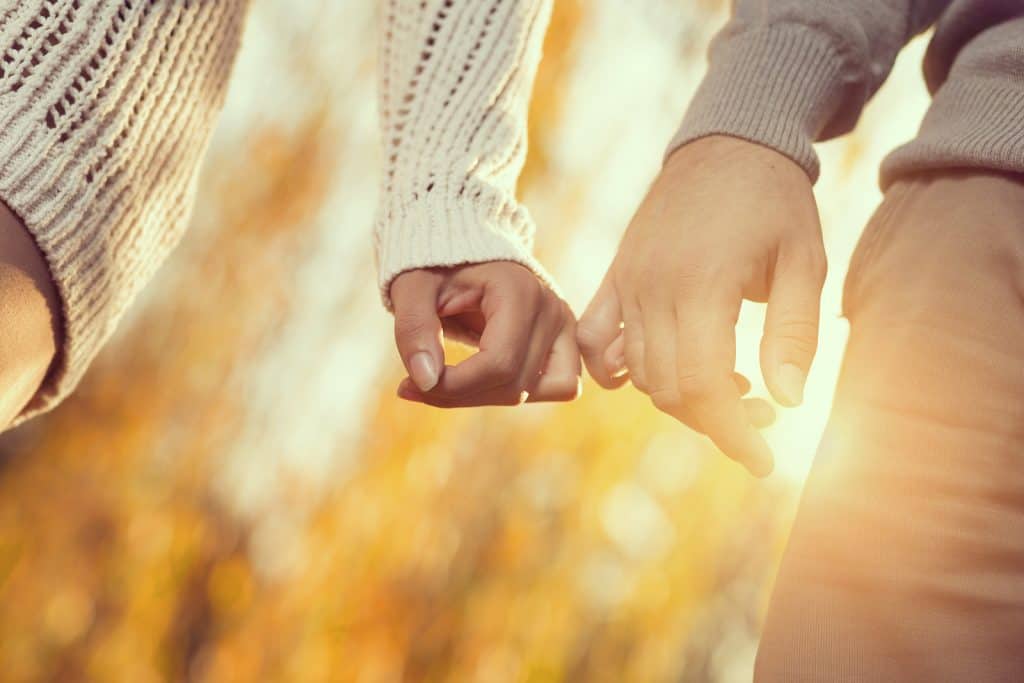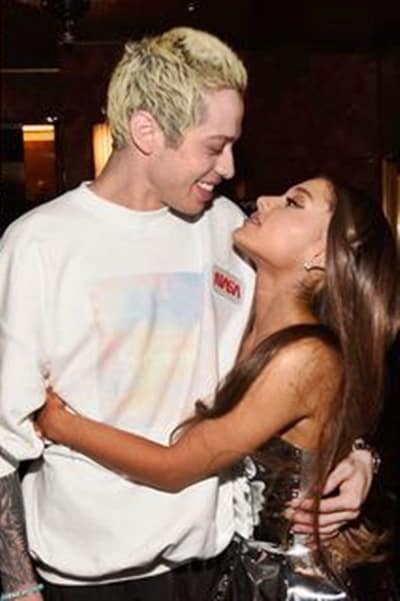The surprisingly valuable lessons I learned from my guilty pleasure show.
I love watching TLC’s 90 Day Fiancé. It’s trashy, over-dramatized, and all-around great. For those of you who haven’t had the pleasure of watching this reality trainwreck gold, let me give you the 411:
The show follows Americans and their foreign-born fiancés as they unite in America. However, their special “fiancé visa” only gives the couple three months to get married before one of them is sent home.
Of course, the couple has to plan their wedding (and one of them has to adjust to life in a new country) in a jiffy. Plus, often, the couple has only met in person once or twice before, and they need to get to know each other before tying the knot. So, it’s a busy 90 days.
With cultural differences, language barriers, and the ever-looming threat of one person being sent back home, this show is dramatic, addicting, and…surprisingly educational.
That’s right. Whether I’m making a mental note to follow one couple’s strong example, or more often, learning from their mistakes, 90 Day Fiancé has taught me a lot about relationships.
Here are some of my favorite lessons from some of my favorite 90 Day Fiancé couples.
1. Don’t be afraid to take it slow
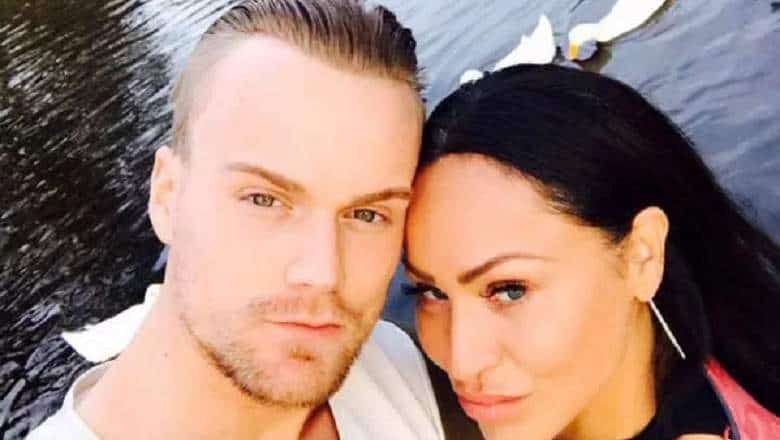
In one of 90 Day Fiancé’s spin-off shows, 90 Day Fiancé: Before the 90 Days, the American goes to visit their out-of-the-country lover before getting engaged. They do this because before applying for the fiancé visa, they have to have met in person. So this meeting is usually their first time seeing each other in person.
That might make you say: “They’ve never met and are already on a reality show about getting married? Wow. That’s moving pretty fast.”
Sure is.
And it seems like Darcey, an American designer, really did want to move quickly towards marriage. She went to Amsterdam to visit Jesse, and while she clearly hoped to get engaged on the trip, Jesse decided to take it slow. By the end of the season he gives her an “appreciation ring” and Darcey goes home without solid marriage plans.
While this may have been a disappointment to Darcey, and many viewers, I think that Jesse’s idea to wait is commendable. So many 90 Day Fiancé couples find themselves feeling rushed to get married because of the visa process, but jumping into marriage too quickly can mean trouble later on.
Darcey and Jesse’s story really struck a chord with me. I know how hard it is to wait to get married, but I also know how important it can be as well.
In my own relationship, my fiancé and I waited 9 years to get engaged. We were young when we met and we didn’t want to move too fast. When we finally got engaged, we were glad we waited. Now, we have such a great foundation to our relationship and are certain we’re ready for marriage.
Of course, not everyone is going to wait 9 years to get engaged. “Ain’t nobody got time for that.” But when it comes to taking big steps in your relationship, follow Jesse and Darcey’s example, and remember that it’s okay to take your time.
2. Make the extra effort for your in-laws

In season 3, Alexei moved from Israel to Florida to marry Loren. Despite some arguments surrounding her bachelorette party and insecurities about her tourettes syndrome, the couple seemed to have a strong relationship. One thing that stood out especially was Loren’s relationship with Alexei’s family.
At one point, Alexei’s mom came to visit them in Florida. She and Loren spent a lot of time together, going shopping and even making dinner. Lauren wanted to show Alexi’s mom a great time in the US, there’s just one problem: the two don’t speak the same language. They struggled to communicate but both mother and daughter-in-law made an effort to bond, and the segment was actually really sweet.
There are a few things I love about this. One, Loren wanted her in-laws to like Florida so that one day they might move closer to her. She knew how important Alexei’s family was to him and she wanted to make him happy, which is great in any relationship. Not many spouses encourage their in-laws to move closer. Second, she is making an effort to communicate with Alexi’s mom, even when there’s a language barrier, which showed how much bonding meant to her.
I know that sometimes it can be hard to communicate with your significant other’s family (even when you speak the same language). Sometimes being in different families or from different generations can make you feel worlds apart, but it’s so important to try to have a good relationship with your in-laws. It helps keep the peace and shows your partner that you care about his or her family, which might be really important to them.
3. Know that you’re not always going to get your way
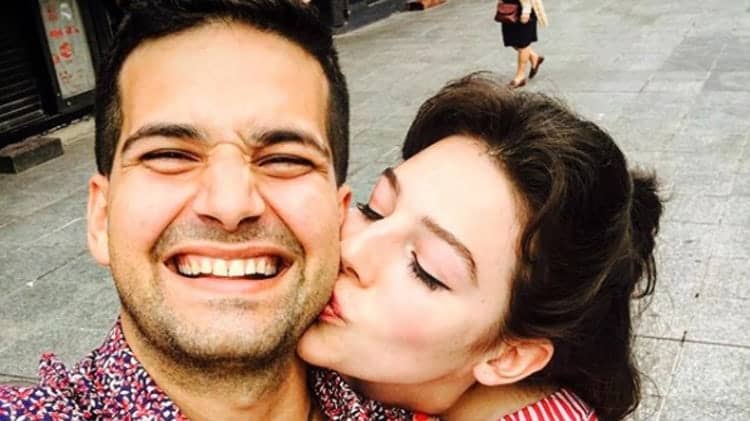
Evelyn and David from season 5 definitely had their differences. They had a big age gap (she was 18, he was 27), different ideas about the wedding, and even conflicting thoughts on where to live.
Sharing a life with someone means compromising. Sometimes things will go the way you want, sometimes you’ll have to consider a different direction. When Evelyn welcomed fiancé David from Spain, it was clear that she expected him to go along with her plans. When he didn’t, it caused a lot of issues.
She spent most of the season arguing with David about everything from small details like what the bridal party would wear, to bigger issues like where they would live after the wedding. It was a rough way to start off a marriage.
Watching Evelyn and David helped remind me to be flexible. Living with someone means that you can’t get your way all the time, and for many people, that can be hard. I was an only child growing up so, in my early life, I didn’t have to compromise on a lot of things. When my fiancé and I started making decisions together, I had a hard time making room for his opinions. There was the issue of living room wall color and what groceries to buy, but eventually, we learned to work more as a team.
Evelyn and David remind us that opening your mind can make your relationship go a whole lot smoother.
4. Learn how to fight in a healthy way
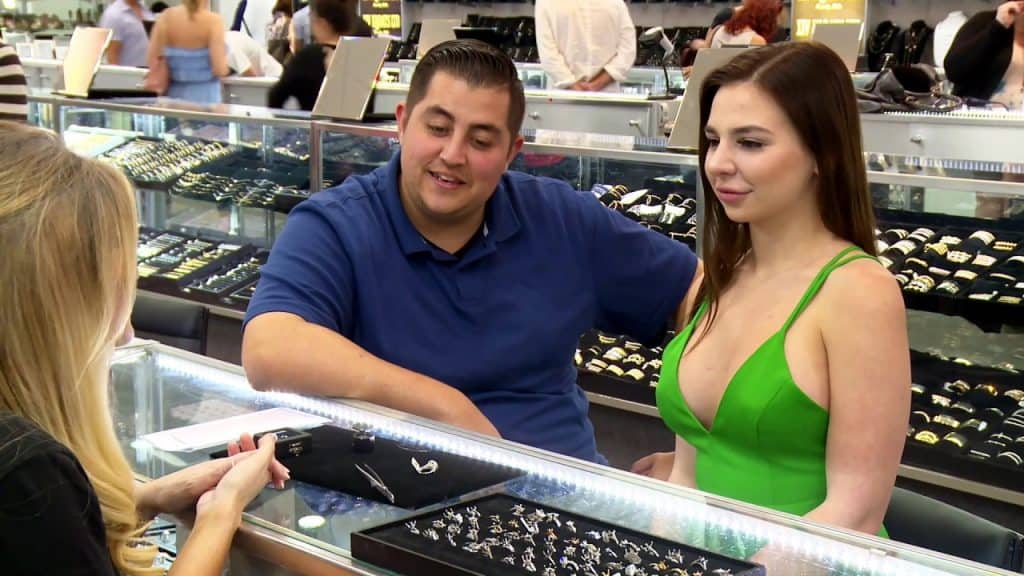
Anfisa and Jorge spent much of season 4 in loud, angry fights. They brought a whole lot of drama to the season, but their arguments were often cringe-worthy. Name calling, door slamming, and even hitting were not uncommon for these two, and it cause many viewers to wish the couple would split up for good.
But their fights were a good reminder of what not to do. Those actions can be hurtful and abusive, and can be more harmful to the relationship than whatever the original fight was about.
Of course, you’re going to disagree with your significant other at some point, it’s unavoidable. The key is to strive for healthy, constructive arguments, and not to get too heated or angry.
It’s important that whenever you feel yourself getting mad, try to stay calm and take a deep breath. If possible, take a break from the fight, calm down, and come back to it later. It will give you time to think about your partner’s point of view and find a rational solution.
5. Tell the truth: lies and secrets will eventually come out
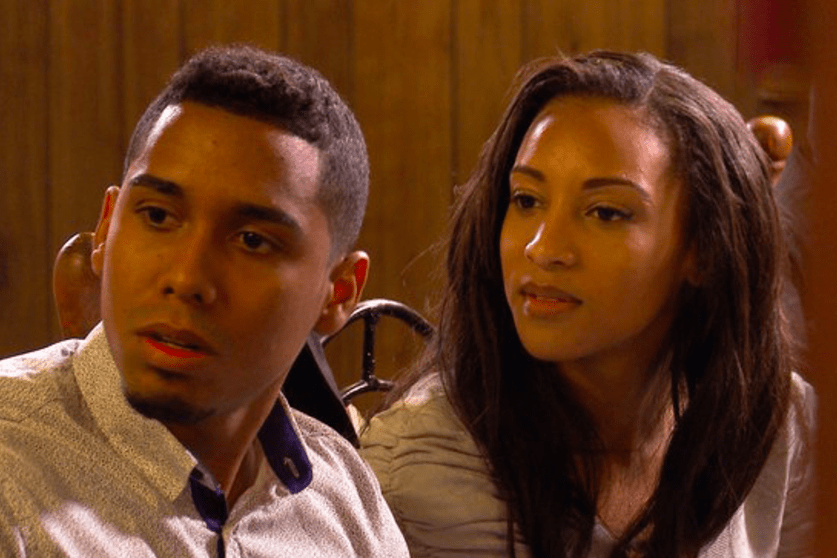
I hate lying and keeping secrets. Whenever I have a secret, no matter how small, I feel guilty and am constantly afraid that someone will figure it out.
When Pedro moved to the United States to marry Chantel in Season 4, Chantel knew her parents wouldn’t be thrilled with her engagement. She decided, instead, to tell her parents that they were only dating and that Pedro was in the country on a student visa. In the end, Chantel’s parents were very hurt that she hadn’t told them the truth from the beginning. It also put Pedro in a tough spot because he was caught in a lie he didn’t want to make.
Their story is a great reminder that a lie isn’t ever really worth it. Whether the lie is to your significant other, or about your relationship, it pays to just be honest up front. The truth is more than likely going to come out eventually, so you might as well save the drama.
6. Talk about what makes you uncomfortable and let your partner know your expectations for the relationship
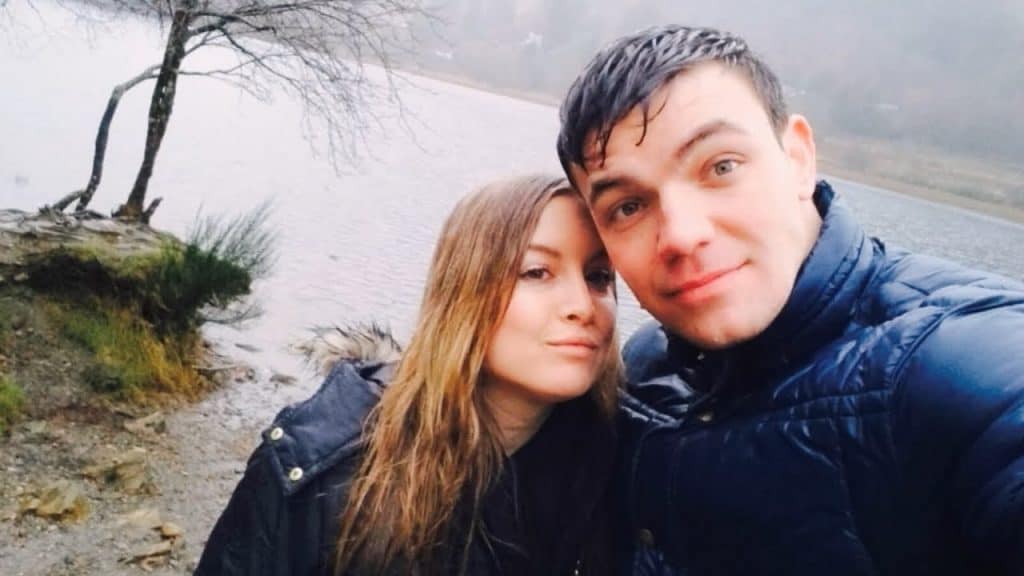
We all have that line that we don’t want our partner to cross under any circumstance. Maybe your “line” is your partner talking to an ex, or maybe it’s tickling you in that spot you hate. Different things bother different people, and it’s important to know what’s okay (and what’s not) when it comes to your partner.
Season 5 couple Andrei and Elizabeth had some issues before their wedding. Elizabeth’s sisters were concerned that Andrei would discourage Elizabeth from going out and partying with them. It seemed like a non-issue to Elizabeth, but it brought up a really important point.
No one should be bossed around by their partner, but sometimes you might have to do something, or even abstain from doing something, in order to keep peace in the relationship.
In the show, Andrei told Elizabeth what he wasn’t comfortable with her bachelorette party plans. They had to find common ground between what she wanted to do and what he wanted her to do during the party, and there was some tension, but in the end they seemed to respect each other’s boundaries.
Of course, you can’t make a whole list of things your partner can’t do. And you certainly can’t let your partner make your choices for you, but being upfront and honest about what makes you uncomfortable can help build trust, especially in a new relationship.
7. Be conscious of what you’re saying
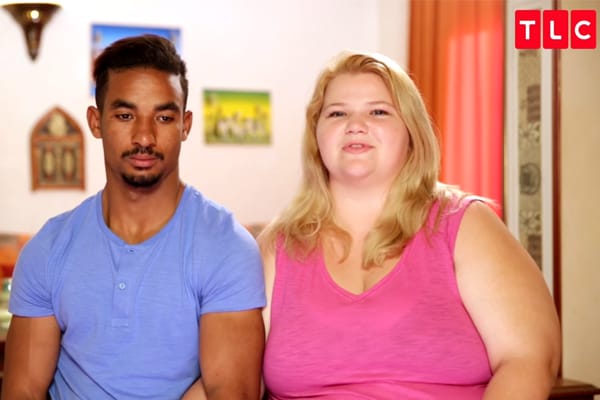
It’s important to encourage your partner to do better, but insulting them is not the way to do it. Azan, from Morocco, was critical of Nicole’s weight multiple times in the show. He said he was only pointing it out because he wanted her to be healthier and share his interest in exercise… but that’s definitely not how it came off. He called her lazy and his words were often hurtful.
Azan’s situation is a good reminder to be careful about what you say to your partner.
I know I sometimes say things that end up sounding pretty harsh, even if I said them with the best intentions. It happens to the best of us. Whether you’re telling your partner to eat healthier or to take out the trash, there are certain ways to say things so that it doesn’t sound like an insult. Try not to get too personal about your partner’s issue, and use kind words when being critical.
8. Be supportive of your partner’s job and hobbies
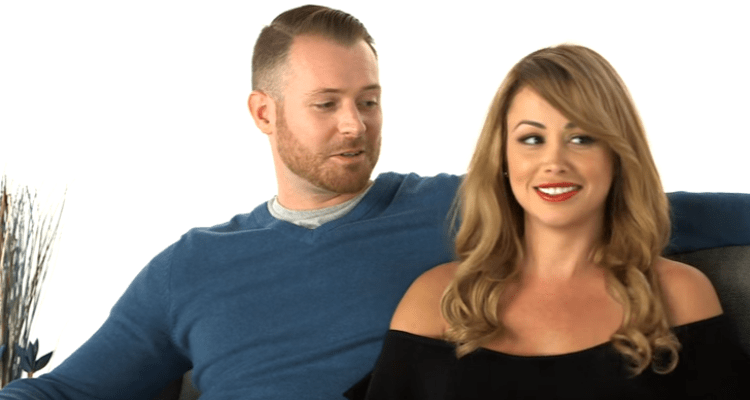
Being supportive of your partner’s job and their dreams is always so important to a relationship… but it can sometimes be hard to muster up the support when it might not have been your first choice for them.
Russ and Paola went through some trouble when Paola began modeling professionally and Russ didn’t agree with her choices. He didn’t want her posing topless and didn’t like the idea of moving to Miami. To an extent, Russ had a point. His job was in Oklahoma, he owned a home in Oklahoma, and he came from a conservative background. At first, it was hard for him to get on board with her modeling and the move.
Still, just because your partner’s dreams aren’t easy for you to support, it doesn’t mean your partner can’t pursue them. In the end, Russ was supportive of Paola’s modeling, and it made her happy. He was able to support his wife, giving the rest of us a great example to follow.
Just because reality shows highlight the craziest and most dramatic things in a relationship, doesn’t mean there isn’t something to learn from these shows. These tips are valuable lessons that can help you, and your partner, foster a great, lasting relationship.
If you want to know some tips to find the love of your life check out 5 Hopeful Dating Tips, From A Woman Who Finally Found Love. Consider signing up for a LOVE TV Membership and you can get one-on-one help from love gurus and relationship experts.


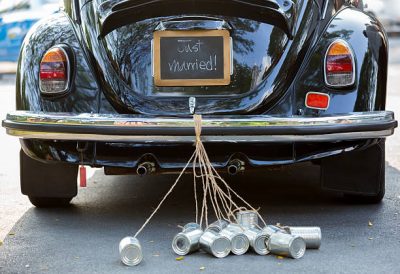 It was a perfect end to a perfect day: The Bride (wearing an off-beat vintage dress that totally said “I’m not like other brides”) took a celebratory swig from a flask in the passenger seat. Her Groom squinted like a sultry James Dean, driving toward the horizon with wind in his hair. The sexy beats of Arctic Monkeys accompanied them as they drove; they thought of the red-hot road trips they took when they had first been dating. This new beginning was just a continuation of a love that was already good.
It was a perfect end to a perfect day: The Bride (wearing an off-beat vintage dress that totally said “I’m not like other brides”) took a celebratory swig from a flask in the passenger seat. Her Groom squinted like a sultry James Dean, driving toward the horizon with wind in his hair. The sexy beats of Arctic Monkeys accompanied them as they drove; they thought of the red-hot road trips they took when they had first been dating. This new beginning was just a continuation of a love that was already good. Love is not a perpetual ride into the sunset. Sometimes it’s two flat tires in a blizzard. And that’s fine! At least it’s not boring.
Love is not a perpetual ride into the sunset. Sometimes it’s two flat tires in a blizzard. And that’s fine! At least it’s not boring.